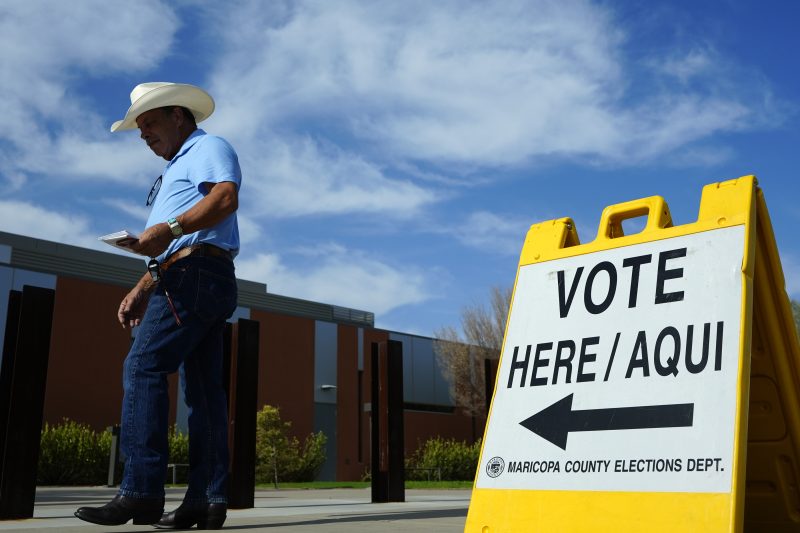
Arizona Supreme Court Grants Full Voting Rights to Voters without Citizenship Proof
In a recent decision that has garnered attention due to its potential impact on voting rights, Arizona’s top court ruled that voters who fail to provide proof of citizenship can still receive full ballots. This ruling comes as a significant development in the ongoing debate surrounding voter access and the need for safeguards to prevent voter fraud.
The case that led to this ruling centered around a 2004 voter-approved law in Arizona that required individuals to show proof of citizenship in order to register to vote. However, the Arizona Supreme Court’s decision has now clarified that voters who do not provide such documentation can still cast full ballots in state and local elections.
This decision has sparked varied reactions among different groups, with supporters of the ruling hailing it as a victory for voting rights and access. They argue that the strict citizenship requirements could disenfranchise eligible voters, particularly those from marginalized communities who may face challenges in obtaining the necessary documentation.
On the other hand, opponents of the ruling caution that relaxing the proof of citizenship requirement could open the door to potential voter fraud. They argue that such safeguards are essential to maintaining the integrity of the electoral process and preventing unauthorized individuals from casting ballots.
The Arizona Supreme Court’s ruling has broader implications beyond the state’s borders, as it adds to the ongoing national conversation surrounding voting rights and voter suppression. With the upcoming midterm elections and the broader challenges faced in ensuring that all eligible voters have access to the ballot box, this decision underscores the importance of balancing voter access with the need for election integrity.
As the debate continues, it remains crucial to find a balance between safeguarding the electoral process and ensuring that all citizens have the opportunity to exercise their right to vote. The Arizona Supreme Court’s decision serves as a reminder of the complexities and challenges inherent in protecting and expanding access to the fundamental right of voting.
